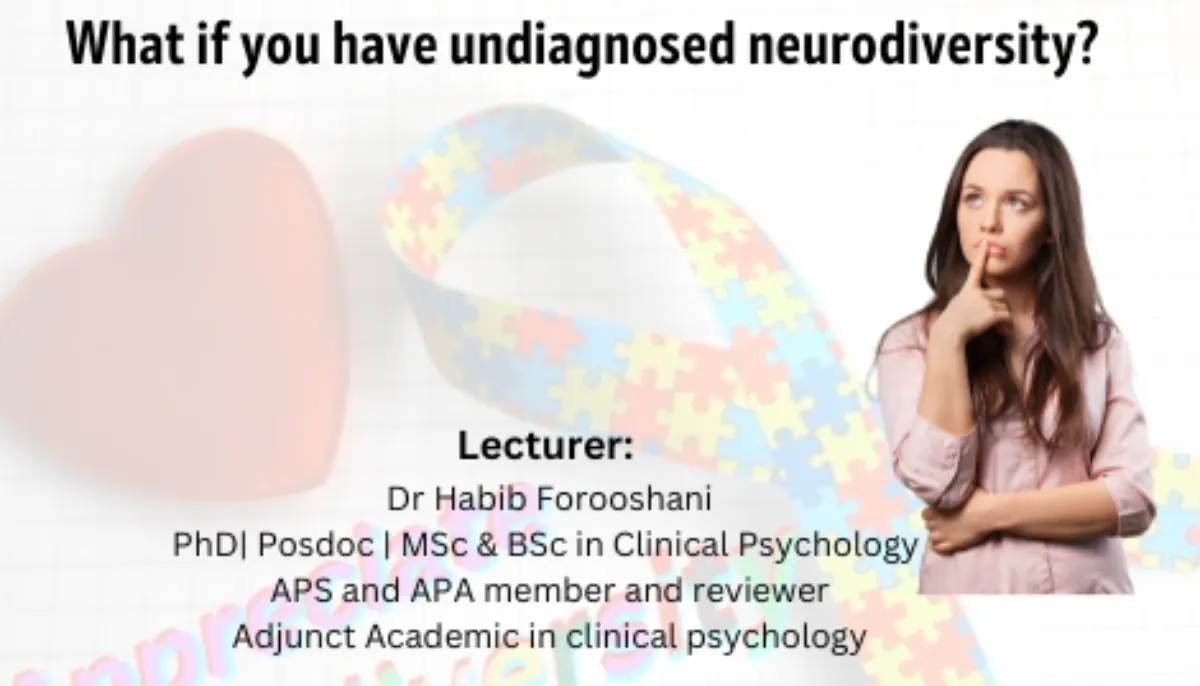

What if you have undiagnosed neurodiversity?
Many adults with neurodiversity (e.g., high-functioning Autism or ADHD) may not receive an official diagnosis until their adulthood or even late adulthood. Join this session and check if this might be the case for you or someone you know.
High-functioning neurodiversity (e.g., ASD and ADHD) are very likely to remain undiagnosed for many years. This is not healthy for the person because it can force long-term "masking" of neurodiversity and a lack of environmental understanding, support and adjustment that could have been provided for the person if people around them knew about their neurodiversity. In this session, we will discuss the signs and symptoms that are important to be taken into consideration either for yourself or someone you know. This can help you decide if it would be beneficial to initiate the process of an official clinical assessment to check the possibility of undiagnosed neurodiversity. We also will discuss the initial stages of adjustment with a recent diagnosis of neurodiversity in adulthood.